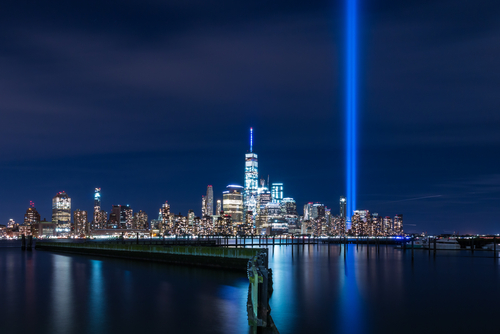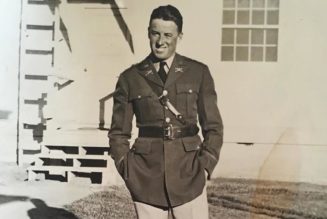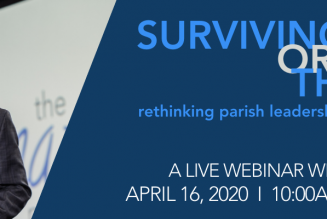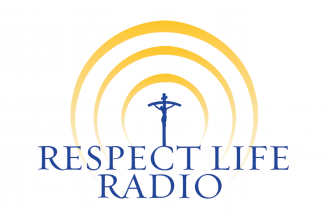
During the meeting of the Mariological Society of America back in May 2019, I had the opportunity to visit Holy Cross Family Ministries and learn more about the life and legacy of the “Rosary Priest,” Fr. Patrick Peyton, CSC.
Part of our field trip excursion included a visit to the cemetery and the grave of Fr. Peyton on the grounds of Stonehill College. The Holy Cross Father docent we had shared about another priest whose remains are not buried in the cemetery but whose memorial is there: Fr. Francis Grogan, CSC.
Why did they draw our attention to him? He was aboard United Airlines Flight 175 and perished in the terrorist attack on the World Trade Center on Sept. 11, 2001. Since his remains were never found, a small amount of ash and rubble from Ground Zero are buried in Fr. Grogan’s grave.
If you can call it God’s providence, Fr. Grogan ended up on United Flight 175 that morning. He originally was scheduled to fly with Delta Air Lines, but a friend of his who worked for United acquired a first-class ticket for his priest friend. What did it mean to have a priest on board that flight in which 65 people perished? It meant forgiveness.
I have no idea if Fr. Grogan was wearing his Roman collar that morning or not. He could have been dressed in civilian clothes for leisure and comfort. Fr. Grogan was known to at least one person on that flight: James Hayden, a Stonehill alum whose friendship with the priest facilitated James meeting his future wife, and who also received a final phone call from her husband about the events.
What did it mean to have a priest on board that flight in which 65 people perished? It meant forgiveness.
The stories I’ve read about Fr. Grogan described him as a prayerful, compassionate, and comforting person. I am sure all the passengers on the plane called out to God in prayer, asking for divine intervention, praying for their families, and praying for themselves and each other. With a priest on board, there was a leader of prayer, one who could have prayed with individuals in those troubling minutes before their deaths.
But more importantly, Fr. Grogan had the opportunity to offer forgiveness for those who perished on that day through the words of absolution.
No one ever thinks they are going to die unexpectedly, unless it’s of a heart attack or stroke. Many people know when death looms for them from a lifetime of illness or from a short-term sickness. For those passengers who boarded Flight 175, they believed they would have another day to be with their family and friends. Another day to ask for forgiveness from God or others they hurt. The priestly presence of Fr. Grogan on Flight 175 offered the gift of forgiveness in those last moments of life.
No priest ever thinks they will have to administer general absolution. Canon Law 961.1 says that general absolution can be administered if “danger of death is imminent and there is insufficient time for the priest or priests to hear the confessions of the individual penitents.”
Such was the case on 9/11. I have no empirical evidence that Fr. Grogan offered general absolution, but described by so many as a loving, caring, and compassionate priest, I cannot help but believe that indeed he did.
And how grateful each passenger must have been when they went forth to meet the Lord, and we can hope that our merciful Lord, looked at Fr. Grogan and said those words we hear in sacred Scripture, “Well done, my good and faithful servant” (Matthew 25:23) because he continued to exercise his priestly ministry until his dying breath.
Eternal rest grant unto him O Lord, and all who perished on Sept. 11, and let perpetual light shine upon them. May they rest in peace. Amen.
Other stories about Fr. Grogan:
“9/11: Ten years later: Easton priest gave comfort in tragedy”
Join Our Telegram Group : Salvation & Prosperity





